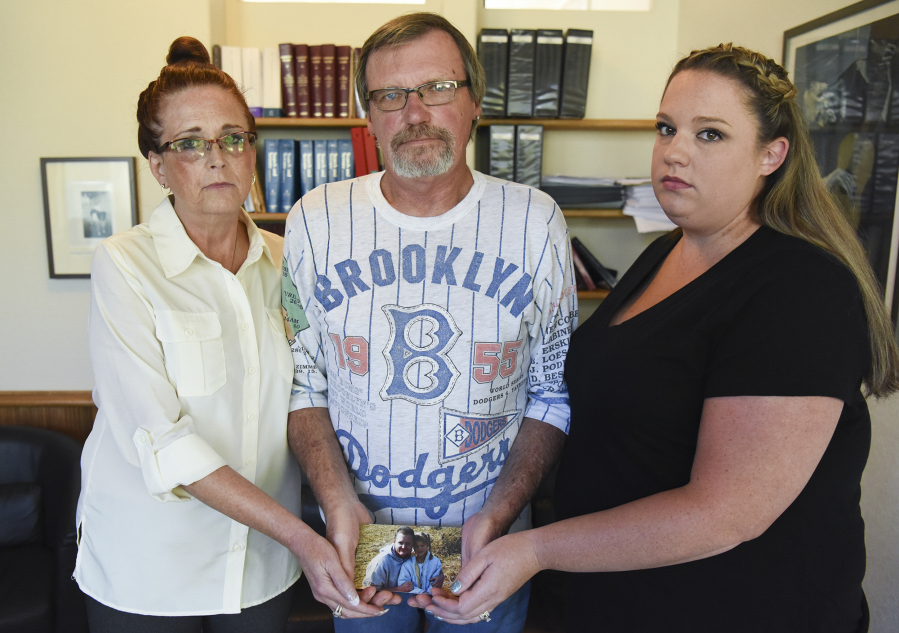He’d been told that his son had slipped and fallen in the Clark County Jail. He was told that he was in the intensive care unit, but would be all right. But the second Kim Lynch walked into the hospital room, he knew Mycheal was brain dead.
“First your gut’s taken out of you,” the 64-year-old Vancouver man said. “You’re just empty, you’re mad, you’re hurt.”
Next came the questions. One rose to the top: What happened?
The events that led up to the death of 32-year-old Mycheal Lynch were the subject of a police investigation and a review by prosecutors. The custody officers involved in the jail struggle that left Lynch dead were cleared of any wrongdoing and followed all county policies, officials said.
But Lynch’s family believes something went wrong and they’re determined to hold those responsible accountable. They said they want lasting change at the jail so that no one else has to experience their pain.




